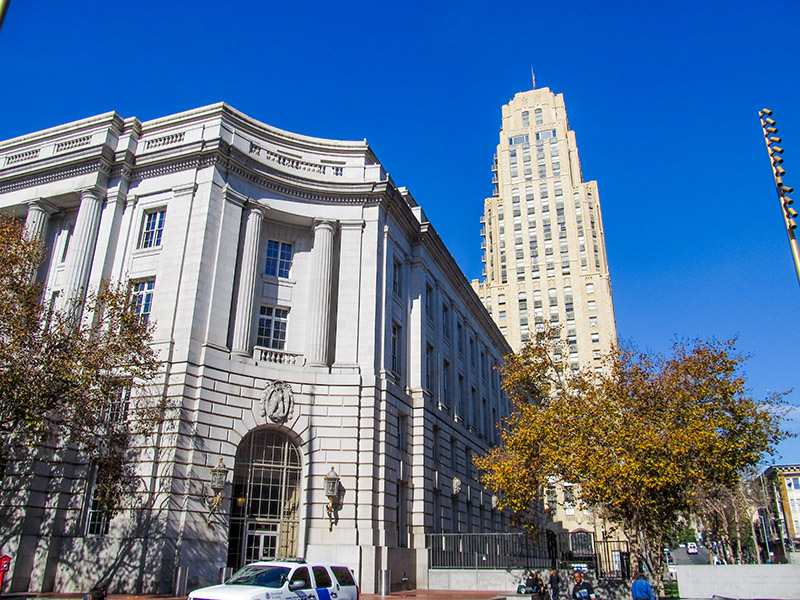Arizona Supreme Court rules that family law judges may ensure transgender children receive medically necessary care
Court finds custodial parents' rights can be restricted if they threaten the health or safety of their children

The Arizona Supreme Court has ruled that family law judges may limit a custodial parent’s authority when necessary to protect a child from harm, including by ordering that the child receive counseling.
Last Thursday, the court weighed into a dispute between two parents, Paul E. and Courtney F., who disagreed about how to respond to their child’s gender dysphoria. Courtney F. had largely embraced the idea that her child, L., was transgender, and treated L. according to their gender identity, allowing L. to dress in girls’ clothes, play with stereotypically female toys, and referring to L. using feminine pronouns.
Paul E. objected to this open approach to gender identity, and felt that L. would be better served if not encouraged to identify as a female at such a young age. But he did agree to allow L. to see a therapist with whom L. could talk to about their feelings of gender dysphoria, although only in a clinical setting.
After a week-long trial in family court, the judge awarded primary custody to Paul E. but ordered that the child’s then-current therapist continue treating the child. The court also appointed an expert on the mental health of transgender children to advise the parties and the court about ongoing treatment.
Paul E. appealed, claiming that the trial judge did not have the authority to make those decisions. The Arizona Court of Appeals agreed and reversed the lower court, finding that family law judges cannot require that a custodial parent provide counseling for a child or appoint a specific counselor. Courtney F. appealed that ruling to the State Supreme Court.
Now, the Arizona Supreme Court has unanimously ruled that state law authorizes the family court to limit a custodial parent’s authority to protect a child from physical or emotional harm. However, the court also found that such orders must be narrowly tailored to the specific circumstances in each case.
“[R]efusing to retain particular therapeutic services could justify an order requiring such services if refraining from doing so would endanger the child’s physical health or significantly impair the child’s emotional development,” Justice Ann Scott Timmer wrote on behalf of the court. “The limitation imposed can be a prohibition or a directive. But any limitation must be tailored to prevent or remedy the endangerment or impairment. The court must be mindful not to unnecessarily intrude on the sole legal decision-maker’s unshared authority to make major decisions concerning the child’s upbringing, even if those decisions conflict with expert opinion or the court’s own views on childrearing.”
In this particular case, the Supreme Court found that the trial court’s order did not include specific findings that would support ordering Paul E. to ensure L. continue seeing a particular therapist.
“If the evidence showed that L. would be placed at risk for physical danger or significantly impaired emotionally if Father chose not to maintain therapy for L. or consult with a gender expert, the court could compel therapy and consultation,” Timmer wrote. “But absent evidence demonstrating that Father would choose an unqualified or ineffective therapist or gender expert, [the statute] did not authorize the court to select a specific therapist and expert.”
As a result, the Supreme Court has sent the case back to the trial court judge so they can issue a new order tailored to the specific circumstances of the case and L.’s specific needs.
The National Center for Lesbian Rights, which helped represent Courtney F., praised the court’s decision — not necessarily because of the outcome for L., but because of the clarity it gives family-court judges who might deal with similar custody cases involving gender-nonconforming children in the future.
“We are pleased that the Arizona Supreme Court affirmed that family-court judges have the flexibility to craft custody orders that protect children from harm, including requiring a custodial parent to provide a gender nonconforming child with supportive counseling and care,” Shannon Minter, legal director at the National Center for Lesbian Rights, said in a statement. “This is particularly important for transgender children who require specialized healthcare to address their unique needs.”
“This is an important decision that will provide family courts with more guidance about when to issue orders limiting a custodial parent’s authority and about the need to tailor such orders carefully, based on the specific circumstances in each case,” Taylor Young, an attorney with law firm Mandel Young, PLC, who argued the case before the Arizona Supreme Court.
“Family court judges must be able to protect children from harm,” Young added. “[This] opinion preserves their ability to do so, including by ensuring that children receive necessary counseling and care.”
Support Metro Weekly’s Journalism
These are challenging times for news organizations. And yet it’s crucial we stay active and provide vital resources and information to both our local readers and the world. So won’t you please take a moment and consider supporting Metro Weekly with a membership? For as little as $5 a month, you can help ensure Metro Weekly magazine and MetroWeekly.com remain free, viable resources as we provide the best, most diverse, culturally-resonant LGBTQ coverage in both the D.C. region and around the world. Memberships come with exclusive perks and discounts, your own personal digital delivery of each week’s magazine (and an archive), access to our Member's Lounge when it launches this fall, and exclusive members-only items like Metro Weekly Membership Mugs and Tote Bags! Check out all our membership levels here and please join us today!





























You must be logged in to post a comment.